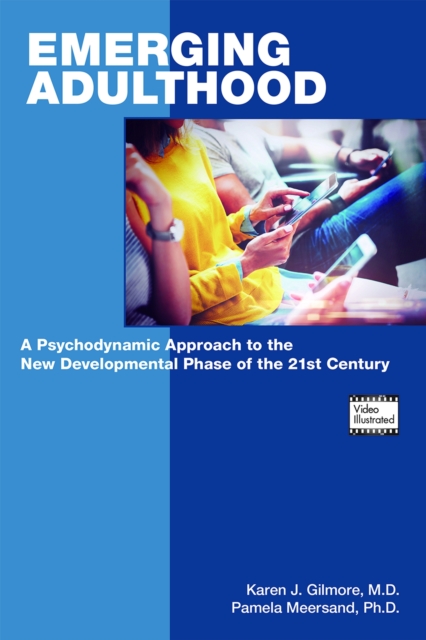
Emerging Adulthood : A Psychodynamic Approach to the New Developmental Phase of the 21st Century Paperback / softback
by Karen J., MD (Clinical Professor of Psychiatry and Neurology) Gilmore, Pamela, PhD Meersand
Paperback / softback
Description
What makes an adult? Is it living independently, having a stable career path, getting married, or becoming a parent?
In the digital age, particularly in Western societies, such traditional markers have been increasingly postponed and redefined.
Thus, the concept of emerging adulthood, first described by Jeffrey Jensen Arnett, Ph.D., is a period between adolescence and adulthood properly characterized by identity exploration, instability, self-focus, feeling in-between, and a sense of wide-open possibilities. Many contemporary researchers have defined emerging adulthood as the period between ages 18 and 29 years, but this new volume argues that it is more useful to look at early emerging adulthood, or late adolescence (ages 18–23), and later emerging adulthood (ages 24–29) separately.
Although certain broad trends characterize the entire decade in question (role experimentation, focus on self-discovery), the developmental capacities and tasks of the earlier years are distinct from those of the mid- to late 20s. In accessible chapters made even more applicable by the use of illustrative vignettes and videos that provide an individualized depiction of the broader concepts addressed more abstractly within the book, Emerging Adulthood: A Psychodynamic Approach to the New Developmental Phase of the 21st Century examines the overarching similarities and developmental distinctions between these two periods and subsequently delves into • The identity process in contemporary society, and its inevitable intersection with the digital world, focusing on domains such as race/ethnicity, gender and sexuality, values, and professional roles • The centrality of youth culture in aiding the individuation from family of origin, particularly through the lens of technology, connection to peers, and trends in music and fashion • How to distinguish between typical emotional experiences and behaviors in the years leading up to adulthood and psychopathologies that require mental health interventions • Treatment modalities for individuals in this phase of life, including cognitive-behavioral therapy, dialectical behavior therapy, digital enhancements, and peer involvement Key points for each chapter will help readers reference the most salient takeaways as they gain a deepened understanding of the interface of culture and society, family, development, and individual psychology during these dynamic life phases.
Information
-
Less than 10 available - usually despatched within 24 hours
- Format:Paperback / softback
- Pages:324 pages, 1 Charts
- Publisher:American Psychiatric Association Publishing
- Publication Date:03/12/2023
- Category:
- ISBN:9781615374199
Information
-
Less than 10 available - usually despatched within 24 hours
- Format:Paperback / softback
- Pages:324 pages, 1 Charts
- Publisher:American Psychiatric Association Publishing
- Publication Date:03/12/2023
- Category:
- ISBN:9781615374199






